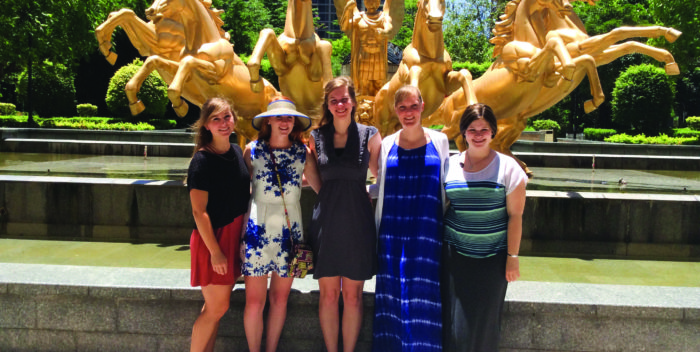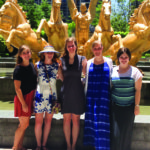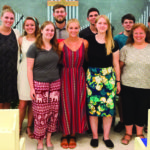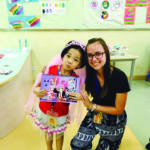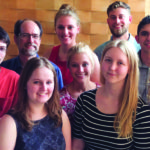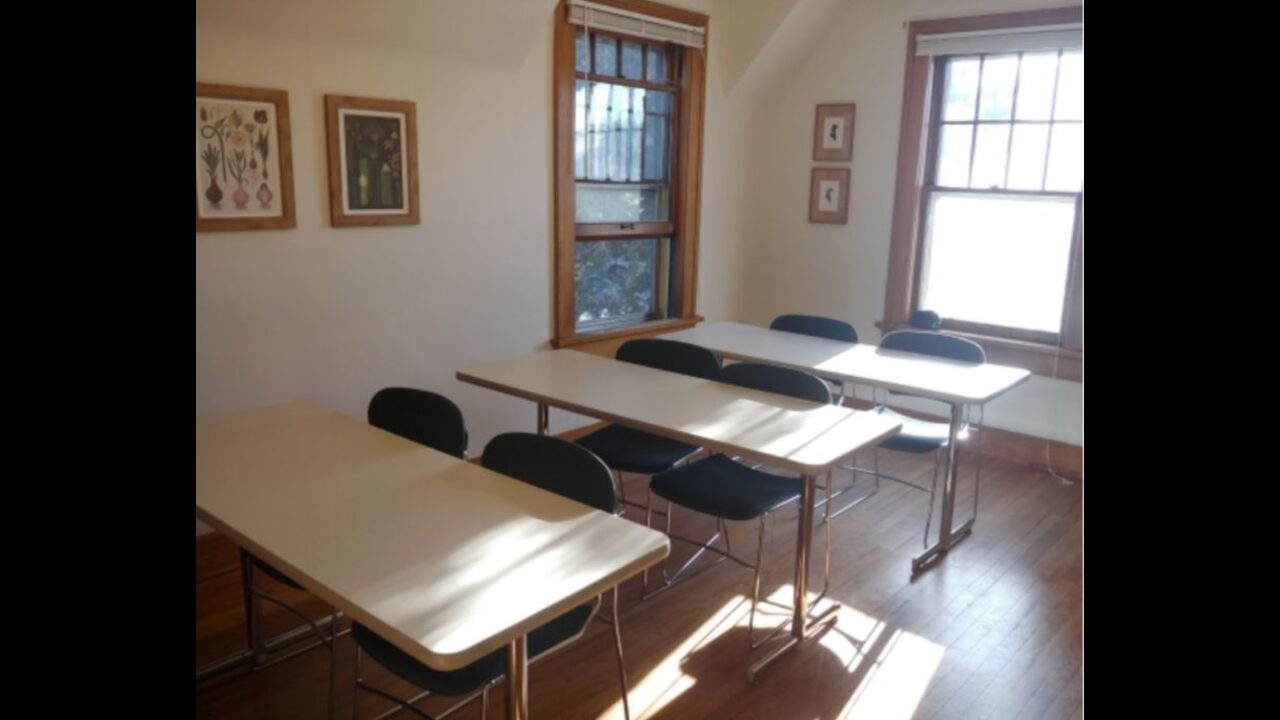Concordia Students Teach ESL in China Over Summer
by Jayme Lowe
Two groups of Concordia students traveled to Shenzhen, China, to teach English to elementary students in June and July.
For four years, Concordia has partnered with Buena Vista Concordia International School, a K-8 school in Shenzhen, which is partially owned by the Lutheran Church—Hong Kong Synod. Concordia students lead camps to help the students improve their English skills and learn about American culture.
“Preparation for these trips begins in April with those who have been selected to participate,” ESL program director Dr. Vicki Anderson said. “In weekly meetings, we explore aspects of missions, the involvement of the Lutheran Church in Asia, the culture of China, the Chinese language and how to teach English when you don’t speak someone’s native language.”
Anderson, Rev. Dr. John Mehl and Director of Global Opportunities Julie Johnston Hermann all contribute to this stage of the process. Near the end of the school year, the Concordia students choose which sessions and grades they would like to work with, and in May the team members work with Anderson to develop lesson plans for the activity sessions and English classes. Each Concordia student is given a class of roughly 12 Chinese students.
From June 20 to July 8, five Concordia students led an arts-themed camp for kindergarten through fifth graders. Senior Kara Blase, sophomore Sarah Johnson, senior Ashlyn Sebesta, junior Emily Sievert and junior Katherine Vogel taught English, as well as dance, art and music. This first camp had about 55 students in attendance, the majority of whom were students from BCIS. Other students came from schools in the surrounding area.
The second group of eight Concordia students worked in Shenzhen from July 11 to 29 and ran a camp for grades K-6 that featured science, arts and crafts, and sports sessions in addition to the English language studies. Junior Devin Bettman, senior Rachel Keseman, sophomore Madison Pitsch, senior Hannah Rose, senior Sophie Simonsen, sophomore Kelly Snader, sophomore Ray Villegas and junior Marti Vlasin all joined this trip.
The second camp had nearly 92 children participating.
Of the 13 Concordia students who participated, nine are majoring in education. The others include two world and intercultural studies majors, an art major and an art therapy major. The trip can count toward hours for ESL classes, world and intercultural studies internship experiences or other types of fieldwork requirements.
The preparation process for the trip is extensive, and applications are due in February or March.
One of the most notable features of this trip is the cost. Each Concordia participant only pays about $150 up front to cover the cost of their Chinese visa. BCIS covers airfare and living expenses.
While they worked during the week teaching classes and planning lessons, the Concordia students did get an opportunity to sightsee on the weekends. However, working at the camp was a highlight for many.
“My favorite part with the kids was when all of them were able to spell Wednesday,” Pitsch said. “We had practiced them for at least a week and a half, with writing exercises and games, and finally they all got it, and it was such a treat!”
The Concordia students had other memorable experiences as well, such as sharing the Easter and Christmas stories with children who had never heard them before. The stories were a part of their explanations of “why Americans celebrate Christmas and Easter,” as they were not allowed to directly share the Gospel.
Even though they had been told some of what to expect, there was still some struggle with the intense differences between America and China. The teams live in Americanized housing, with Chinese versions of Walmart, KFC, Pizza Hut and Starbucks nearby.
“These places aren’t exactly like their American counterparts,” Anderson said. “The rotting-flesh smell of durian fruit and pungency of piles of salted fish at the Walmart hits you before you ever walk in the door, for example, but they are close enough in general to make Americans feel like they can get their Oreos or Snickers when they need a taste of home.”
While all of this helps, Anderson and the other team leaders have discovered that three weeks is the optimum time spent in China. Any longer, and the students will cross the line from “done” to “thoroughly overwhelmed.”
The trips this year were considered successful. With over 150 students taught between the two teams, it was an experience to remember for the thirteen CUNE team members.
“I really enjoyed the trip and would consider participating again,” Pitsch said. “I also really encourage others to try going. It was life changing!”
For more information about participating in next year’s trip, contact Dr. Vicki Anderson.
- The first group of Concordia students led an arts-themed camp for younger students in China from June 20 to July 8.
- The second group of Concordia students taught ESL in China from July 11-29.
- Sophie Simonsen and a Chinese student pose for a picture.
- The second group taught a total of nearly 92 children in China.


